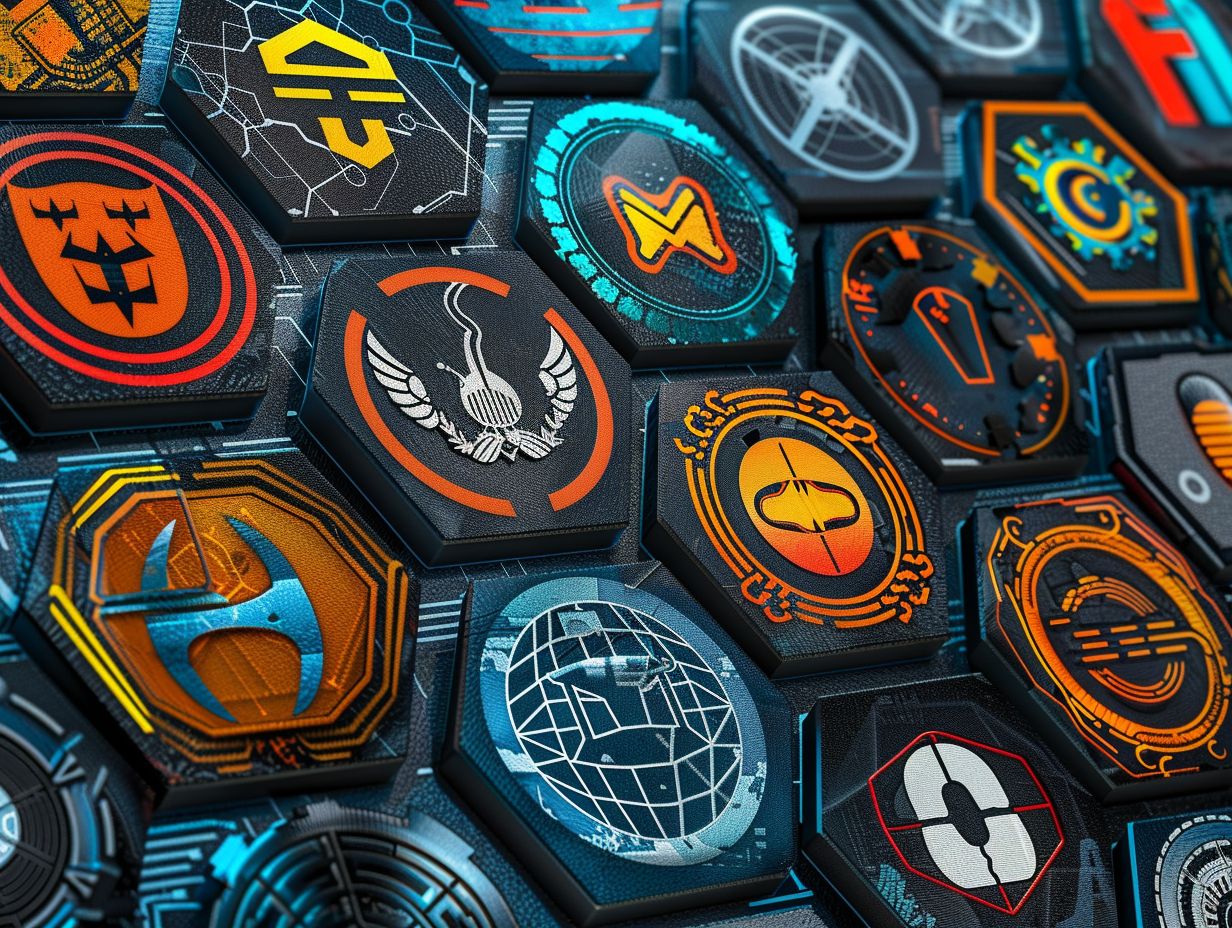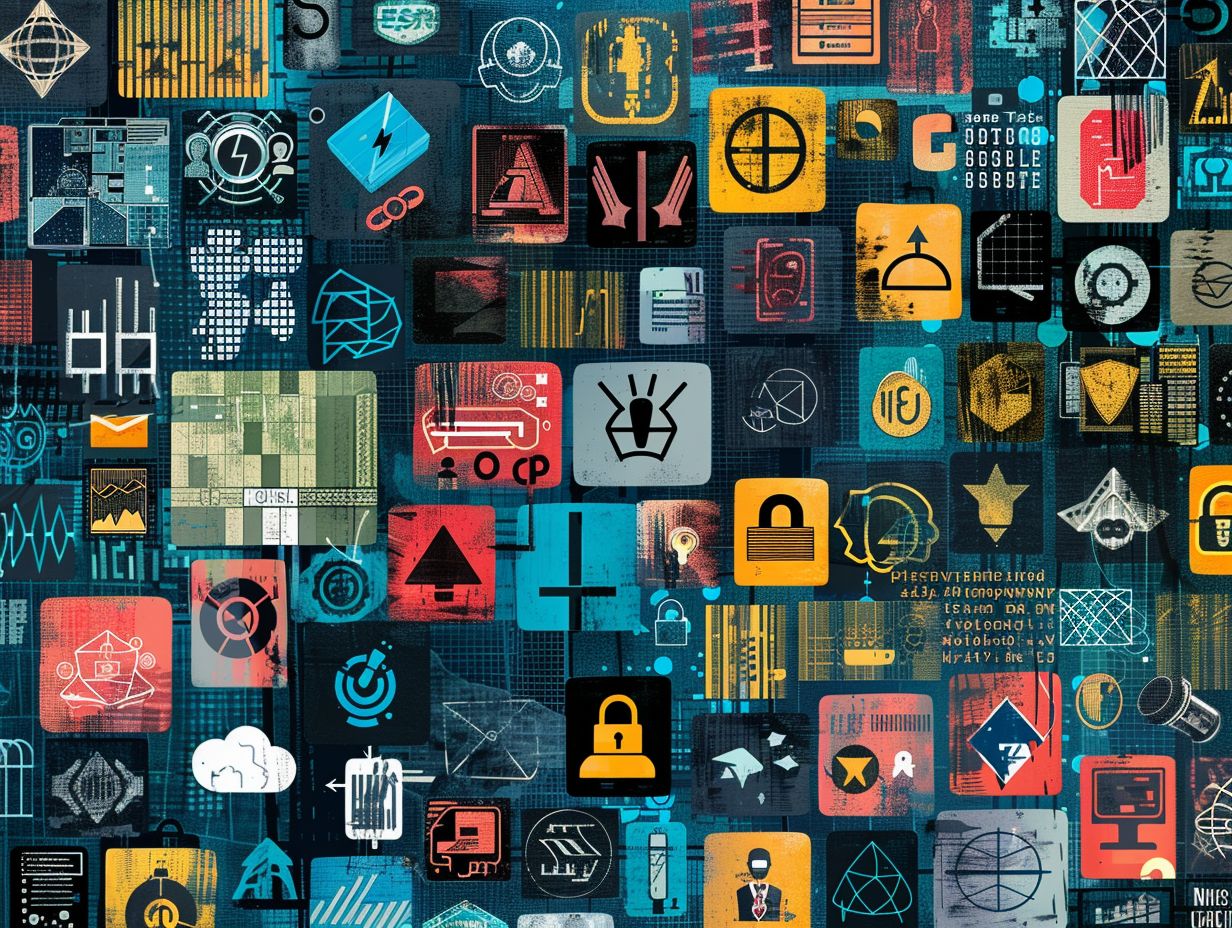If you are seeking to advance your career in cybersecurity, consider exploring the range of industry-specific certifications offered by CompTIA. These certifications are tailored to various sectors such as healthcare, government, finance, education, and more.
This article will provide an in-depth look at the different certification programs available for each industry, emphasizing the specialized knowledge and benefits they provide. Additionally, we will cover the requirements and resources necessary to acquire and uphold these certifications, equipping you with the essential tools to excel in the constantly evolving realm of cybersecurity.
Key Takeaways:

Overview of CompTIA and their Certification Programs
You can explore a broad array of cybersecurity certifications offered by CompTIA that are specifically crafted to elevate the skills and expertise of IT professionals working in the information security domain. These certifications encompass the Certified Information Systems Security Professional (CISSP), Certified Information Systems Auditor (CISA), Certified Information Security Manager (CISM), and Certified Ethical Hacker (CEH), among others.
Renowned across the cybersecurity industry, these certifications hold global recognition as standards of proficiency in securing digital information. CompTIA’s programs delve into an extensive range of topics such as network security, risk management, ethical hacking, and security auditing.
Through the training imparted in these certifications, you will acquire the knowledge and tools essential for fortifying organizations against cyber threats. Employers frequently seek professionals holding CompTIA certifications, viewing them as evidence of the individual’s expertise and dedication to upholding a secure digital environment.
With the escalating evolution of cyber attacks, the need for adept cybersecurity professionals possessing these certifications is projected to grow, rendering them critical assets in protecting sensitive data and upholding the integrity of information systems.
Cybersecurity Certifications for Specific Industries
Cybersecurity certifications are essential for safeguarding industries against cyber threats and vulnerabilities. These certifications, provided by reputable organizations like CompTIA, offer specialized training to address the distinct security challenges encountered by specific industries, such as Fortune 500 companies. In these industries, security analysts and penetration testers are crucial to prevent data breaches.
Certifications for Healthcare Industry
In the healthcare industry, cybersecurity certifications are essential for combating the rising threats of data breaches and vulnerabilities. Professionals must obtain specialized certifications from CompTIA to acquire the skills necessary to protect sensitive patient information and maintain the security of healthcare systems.
As digitalization continues to expand in healthcare, organizations become more vulnerable to cyber attacks. This underscores the importance of professionals being knowledgeable in cybersecurity practices. Healthcare data, which includes patient records, payment details, and medical histories, is extremely sensitive. Consequently, there is a significant need for stringent security measures.
Certifications such as Security+ and CySA+ from CompTIA are tailored to tackle the specific security issues encountered by healthcare establishments. These certifications focus on identifying and mitigating risks, ensuring compliance with regulations such as HIPAA, and implementing robust security measures to prevent unauthorized access.
Certifications for Government and Military

Government agencies and the military sector rely on robust cybersecurity certifications to safeguard classified information, prevent cybercrime, and defend against cyber threats. CompTIA offers specialized certifications that cater to the unique security requirements of government and military entities.
These certifications play a crucial role in upholding national security interests by ensuring that sensitive data remains secure from malicious actors. With cyber attacks becoming increasingly sophisticated, having professionals with CompTIA certifications can greatly enhance the cybersecurity posture of these organizations. By equipping personnel with the latest knowledge and skills in areas such as network security, penetration testing, and incident response, CompTIA certifications help to fortify defenses and mitigate potential risks to critical infrastructure and information systems.
Certifications for Financial Institutions
Financial institutions like yours encounter significant cybersecurity challenges because of the sensitive nature of financial data and the ever-present threat of data breaches. CompTIA offers specialized certifications designed to address the unique security concerns faced by banks, investment firms, and other financial entities.
These certifications, such as CompTIA Security+ and CompTIA CySA+, equip professionals in the financial sector with the knowledge and skills needed to protect valuable assets and customer information effectively.
By acquiring these certifications, you can showcase your expertise in identifying vulnerabilities, implementing security measures, and responding to cyber threats with precision. This not only strengthens the overall security stance of financial institutions but also fosters trust among clients and stakeholders, demonstrating a proactive commitment to safeguarding sensitive financial data.
Certifications for Education and Non-Profit Organizations
Education institutions and non-profit organizations increasingly rely on cybersecurity certifications to safeguard sensitive data, protect donor information, and prevent security breaches. CompTIA offers tailored certifications to meet the security needs of schools, universities, and non-profit entities.
These certifications play a crucial role in ensuring that educational and non-profit sectors have the necessary skills and knowledge to combat cyber threats effectively. By obtaining CompTIA certifications, professionals in these organizations can enhance their cybersecurity resilience, mitigate risks, and comply with industry standards. Securing donor information and intellectual property is of utmost importance to maintain trust and credibility.
With the rapid increase in cyber attacks targeting these sectors, having certified cybersecurity experts is essential in safeguarding valuable data and protecting the reputation of educational and non-profit organizations.
Benefits of Industry-Specific Cybersecurity Certifications
Industry-specific cybersecurity certifications provide various advantages, such as improved skills, specialized training, and focused expertise in tackling security challenges specific to the sector. These certifications enable security analysts and professionals to proactively prevent data breaches and safeguard critical assets within their industries.
Relevance and Specialized Knowledge

Industry-specific cybersecurity certifications provide you, as a professional, with the relevance and specialized knowledge necessary to address the unique security challenges within your particular sector. CompTIA certifications offer you the skills and expertise required to effectively tackle vulnerabilities and protect critical assets.
These certifications are customized to meet the specific security requirements of industries like healthcare, finance, and government, where safeguarding data and maintaining confidentiality are of utmost importance. By undergoing specialized training, you, as a security analyst, can develop a comprehensive understanding of sector-specific threats and solutions. This in-depth knowledge give the power tos you to implement robust security measures that comply with industry regulations and standards. Through ongoing learning and certification renewal, you can remain updated on evolving cyber threats and uphold the highest level of proficiency in safeguarding sensitive information.
How to Obtain and Maintain Industry-Specific Certifications
Achieving and upholding industry-specific certifications in cybersecurity demands a blend of meeting precise criteria, obtaining relevant training, and utilizing resources provided by certification entities such as CompTIA. These certifications entail a dedication to ongoing education and adherence to professional development norms.
Requirements and Resources
To obtain industry-specific cybersecurity certifications, you must meet specific requirements, access relevant training resources, and utilize platforms like Pearson VUE for certification exams. These certifications typically require a combination of experience, education, and successful completion of exams to verify professionals’ expertise.
It is essential to meet the prerequisites for these certifications as they ensure that individuals have the knowledge and skills necessary to protect critical systems and data. By following a structured examination process through platforms like Pearson VUE, candidates can demonstrate their proficiency in areas such as ethical hacking, network security, and incident response. Engaging in the required training and earning these certifications not only improves career opportunities but also strengthens confidence in the capabilities of the cybersecurity workforce.
Frequently Asked Questions
What are the different CompTIA cybersecurity certifications available for specific industries?

Some of the CompTIA cybersecurity certifications for specific industries include CompTIA Security+, CompTIA CySA+, and CompTIA PenTest+.
How can CompTIA’s cybersecurity certifications benefit professionals in specific industries?
These certifications can help professionals gain a deeper understanding of cybersecurity concepts and best practices, making them more valuable to their respective industries.
Are there any prerequisites for obtaining CompTIA’s cybersecurity certifications for specific industries?
Most of these certifications have recommended but not required prerequisites, such as prior work experience or a foundational knowledge of IT and cybersecurity.
Which industries can benefit the most from CompTIA’s cybersecurity certifications?
Industries such as healthcare, government, finance, and manufacturing can greatly benefit from having professionals with CompTIA cybersecurity certifications, as these sectors are highly targeted by cyber threats.
Do these certifications focus on specific areas of cybersecurity for each industry?
Yes, each certification has a specific focus. For example, CompTIA Security+ covers network security, while CompTIA CySA+ focuses on threat and vulnerability management.
Is there ongoing training or recertification required for CompTIA’s cybersecurity certifications?
Yes, CompTIA requires certified professionals to renew their certification every three years through continuing education activities, such as attending training courses or conferences.
